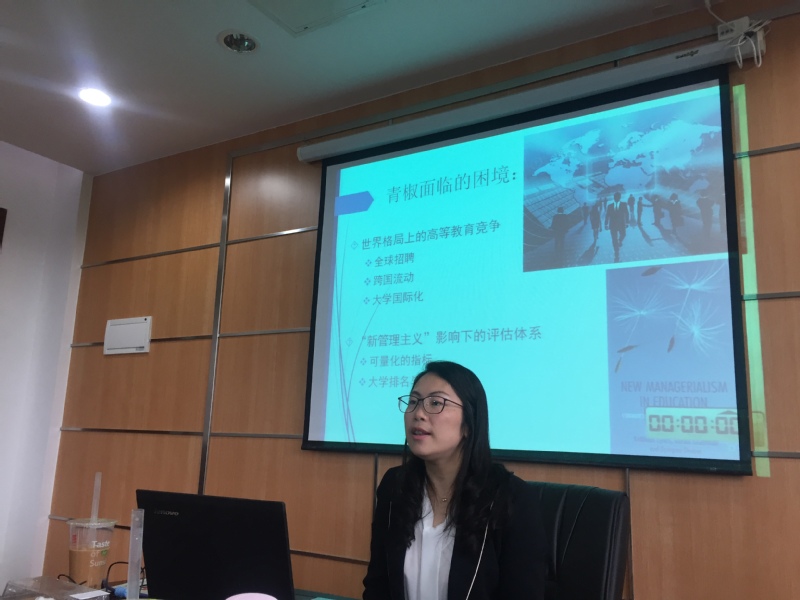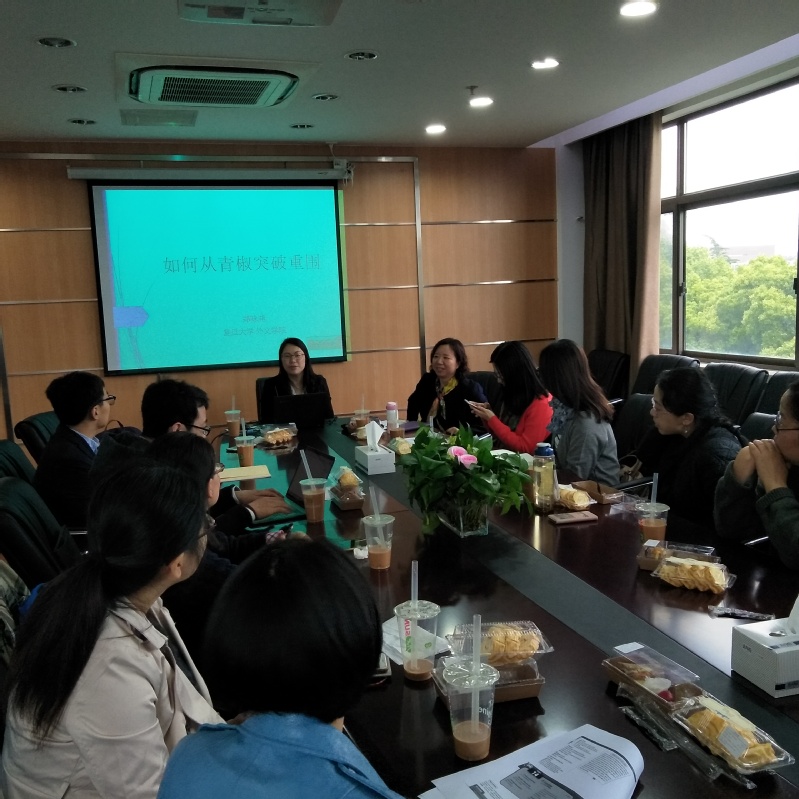Prof. Zheng Yongyan was invited to give a seminar in Shanghai University of Finance and Economics in Room 426 of Red Tile Building on April 24, 2018. Her topic was on “how young scholars survive”. The seminar was chaired by Prof. Zhao Ke, the associate dean of School of Foreign Studies, Shanghai University of Finance and Economics.

Prof. Zheng is the Dean Assistant of College of Foreign Languages and Literature at Fudan University, and was the 2016-2017 Sino-US Fulbright Visiting Research Scholar. She led the Multilingual Competence Development and Second Foreign Language Acquisition Research team, which was part of the Fudan University World-class University and Discipline Initiative. Prof. Zhang was very productive in research in the past years. She has published two monologues (one in Chinese and the other in English), and one edited volume. She published around 40 articles on national and international journals, including 6 SSCI articles and 8 CSSCI articles. Her articles appear on System,Language Awareness, English Today, Journal of Scholarly Publishing, Foreign Language Teaching and Research, Modern Foreign Languages, Foreign Language Education, and Foreign Language Education in China. She has been doing review for multiple SSCI journals, such as Modern Language Journal, Language Policy, Language Awareness, The Asia Pacific Education Researcher, and is also on the editorial board of System. Prof. Zheng has chaired 15 research projects at provincial and university level, among which 11 projects has been completed and 4 projects are ongoing. In addition, Prof. Zhang is able to integrate research with teaching, as she chaired multiple curriculum reform projects and was awarded in teaching contests.
In the seminar, Prof. Zheng primarily talked about her professional experiences and shared valuable advice. At first, she pointed out the “three big mountains” that were imposed on Chinese young scholars, including research, appraisal and life pressure. Then, she proposed four pieces of advice through sharing her personal stories. She stressed on publishing from PhD thesis, but also expanding the research areas. She was aware of the social nature of research, and encouraged building research community and also collaboration. The last piece of advice is to keep the momentum all the time, which was the responsive strategy to cope with the increasingly demanding teacher evaluation. At the end of the seminar, Prof. Zheng had interaction with the audience.

Prof. Zheng’s seminar aroused resonance among the audience. Her advice provided inspiration for the professional development of the faculty members in our school.
(From Dr. Tao Jian)
